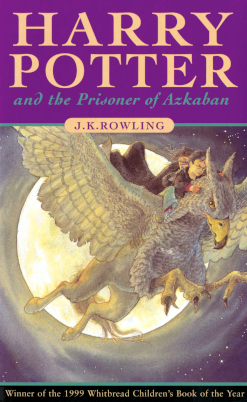On Language, Thoughts, Behavior, and an Excellent Way to Snag a Husband
| Recently, the always insightful Natalie raised questions about the relationship between language, thought and behavior. Specifically, Natalie wondered how we can ever understand a book like the Bible, given that we are separated from its writers both by thousands of years and by what often seem to be insurmountable cultural and anthropological barriers. What can we make of a book written by and to a culture that is so very different from our own? It’s a great question and has direct implications in how the Bible is interpreted.
A perfect example comes from the book of Ruth, the eighth book in the Protestant Christian Bible. Ruth was a Moabite woman whose father-in-law, Elimelech, had settled in a land called Moab. Elimelech died there, and his two sons married, Mahlon taking Ruth for his wife, and Chilion taking Orpah. Both women were from Moab; both sons likewise died. Naomi, Elimelech's bereaved wife, heard that a famine in the land of Judah had passed, and decided to return there. Ruth accompanied her mother-in-law to Bethlehem, at the beginning of barley harvest, in a state of poverty. Elimelech had had an inheritance of land among his people, but, unless a redeemer could be found, Naomi would be compelled to sell the property. Elimelech had a prosperous relative in Bethlehem whose name was Boaz. Naomi sent Ruth to glean grain in his fields, and, after Boaz had acted kindly towards her, she, acting on the advice of her mother-in-law, approached him. Eventually Ruth became the wife of Boaz and gave birth to Obed, the grandfather of King David. That’s the shortened, sanitized for Sunday School version. In that version, Ruth is a compassionate daughter-in-law who fights to save herself and her mother-in-law from poverty. However, to fully appreciate the tale of Ruth, it helps to understand a particular Hebrew euphemism. Victor Shepherd, Professor of Systematic and Historical Theology at Tyndale Seminary, Toronto, explains: Ruth, we should note, wasn't "Miss Goody-Goody Two Shoes." She was calculating, manipulative, devious. We mustn't sentimentalize her. She knew she needed a husband. A widow, in those days, was marginalized on all fronts at once. To be sure, Ruth had been allowed to glean in the field belonging to Boaz as a way of fending off dire poverty. To glean was to pick up stalks of grain that had fallen out of harvesters' arms, as well as to cut the grain left standing at the fringe of the field. It was hard work for little food. It would avert starvation, but no more than this. Ruth wanted more. She wanted a husband. And she snared one, really "snared" him, since she used the shabbiest entrapment to get him. Now this is where the story of Ruth gets earthy, so earthy, in fact, that one commentator has written that preachers ought not to tell their congregations of Ruth's "indelicacy." I disagree. To withhold scripture from people is to falsify the gospel, and therefore I am going to plunge ahead and tell you where and how Ruth was "indelicate." Here's what happened. At the conclusion of the day's harvesting Boaz was thirsty. He drank some wine. He drank more wine, and more still. Now he was deep into the "twilight zone." In fact he was beyond the twilight zone. Whereupon, we read in Holy Scripture, "Ruth came softy and uncovered his feet and lay down." Now to "uncover one's feet" in Hebrew idiom means to expose one's genitals. Ruth exposed Boaz. Next verse in our story: "At midnight Boaz was startled, turned over, and behold a woman lay at his feet." "Who are you?" Boaz asked, and she replied, "I am Ruth, your maidservant. Spread your skirt over your maidservant." Whereupon Boaz flipped his cloak over Ruth and covered himself up as well. What had happened was this. Ruth had "uncovered the feet of Boaz," exposed him. He had drunk too much wine to be aware of this. When finally he did wake up, he saw that he was exposed, and Ruth as well. Plainly she had exposed herself as well; that's why she had said, "Cover up your maidservant." But because Boaz had drunk so much wine, he couldn't remember what had happened; specifically he couldn't remember whether you-know-what had happened. He only knew that he had awakened, naked, with a naked woman beside him. It would certainly appear that something had happened, and so he thought that the only proper thing left him to do was to marry Ruth. He did. In other words, Ruth blackmailed Boaz. She falsified herself and trapped him. Now, you've probably not heard the story of Ruth told quite that way. Largely that's because many Christians don't know that "uncovered feet" really means "exposed genitals." It's amazing that the meaning of a narrative can change so much based on such a seemingly inconsequential phrase. |

















Comments on "On Language, Thoughts, Behavior, and an Excellent Way to Snag a Husband"
-
 Delia Christina said ... (2/07/2005 01:14:00 PM) :
Delia Christina said ... (2/07/2005 01:14:00 PM) :
-
 Natalie said ... (2/07/2005 08:11:00 PM) :
Natalie said ... (2/07/2005 08:11:00 PM) :
-
 T said ... (1/31/2009 09:31:00 AM) :
T said ... (1/31/2009 09:31:00 AM) :
post a commenti remember clearly the sermon my father gave on ruth - and how she was a model of christian femininity. (mostly because of her relationship with her mother in law.)
never, ever, never did he mention the whole naked thing, which is a large oversight considering my father was all about knowing what the 'original' language said.
absolutely hilarious. entrapment.
oh, and i like your blog and am linking to you!
I’ve heard something along the same lines from an anthropologist who comes every year to our anthro classes. He tells the way that the Merle in the Sudan, who are the people he has studied, interpret Ruth. Ruth is their favorite book of the Bible, because it is uncanny how much it is relevant to their culture. The Merle have many of the same customs, like Levirate marriage. They change their names according to events that happen in their lives, so an old woman, for example, who is usually bitter from life, changes her name to the Merle word for bitter.
Funny, according to the Merle, Ruth isn’t devious or indelicate. In fact, she is an exemplar to the Merle, because she does what tradition dictates. She goes for Boaz, an older relative, rather than a hot, young guy. That’s looked highly upon in Merle society, since many women end up with older men because of the way their society is set up (the eldest son has to marry first). Anyway, I thought Shepherd’s take was interesting, although the anthropologist I heard would agree with Shepherd about the scandalous feet-uncovering euphemism.
Looking forward to tommorrow!
Your lack of middle eastern cultural knowledge as well as of the hebrew customs and culture are mind numbing!
Your leaps in logic (or really the lack there of) are scary!
The desire you have to pollute the truth of the scripture is a real shame!